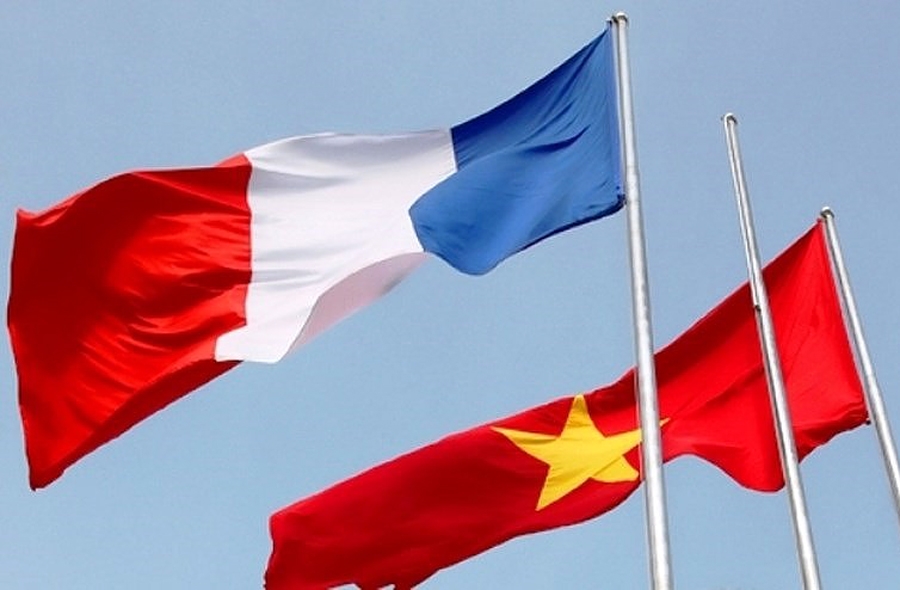New partnership framework for Vietnam and France on the horizon
VOV.VN - Both Vietnam and France are presented with numerous opportunities to elevate their partnership to new heights, making it deeper and more substantive, commensurate with the potential and status of both countries regionally and globally.
Vietnam and France established diplomatic relations on April 12, 1973. Since then, the relationship between the two countries has seen positive developments.
The visit to Vietnam by French President François Mitterrand in March 1993 marked an important turning point in bilateral relations, particularly in the strategies and policies that France has deployed in Southeast Asia and the Asia-Pacific region.
Vietnam, for its part, places great importance on its cooperation with France, viewing it as a key partner in its foreign policy. Vietnam has consistently sought to deepen the traditional friendship, trust, and strategic partnership between the two countries.
Forty years after the establishment of diplomatic relations, the two countries signed a joint statement on the Vietnam-France Strategic Partnership during Prime Minister Nguyen Tan Dung’s visit to France in September 2013. This milestone has propelled the relationship to become increasingly substantive, deep, and effective.
Both countries have maintained regular high-level visit exchanges over the past years to reinforce political trust and outline directions for bilateral cooperation. They included France visits by President Tran Duc Luong in 2002, Prime Minister Nguyen Tan Dung in 2013, Party General Secretary Nguyen Phu Trong in 2018, National Assembly Chairwoman Nguyen Thi Kim Ngan in 2019, and Prime Minister Pham Minh Chinh in 2021.
On the French side, significant Vietnam visits were made by President Francois Hollande in 2016, Prime Minister Edouard Philippe in 2018, Senate President Gerard Larcher in 2022, Minister Delegate for Foreign Trade, Economic Attractiveness and French National Abroad in 2023, and Minister of the Armed Forces Sebastien Lecornu in 2024.
Strategic partnership increasingly substantive
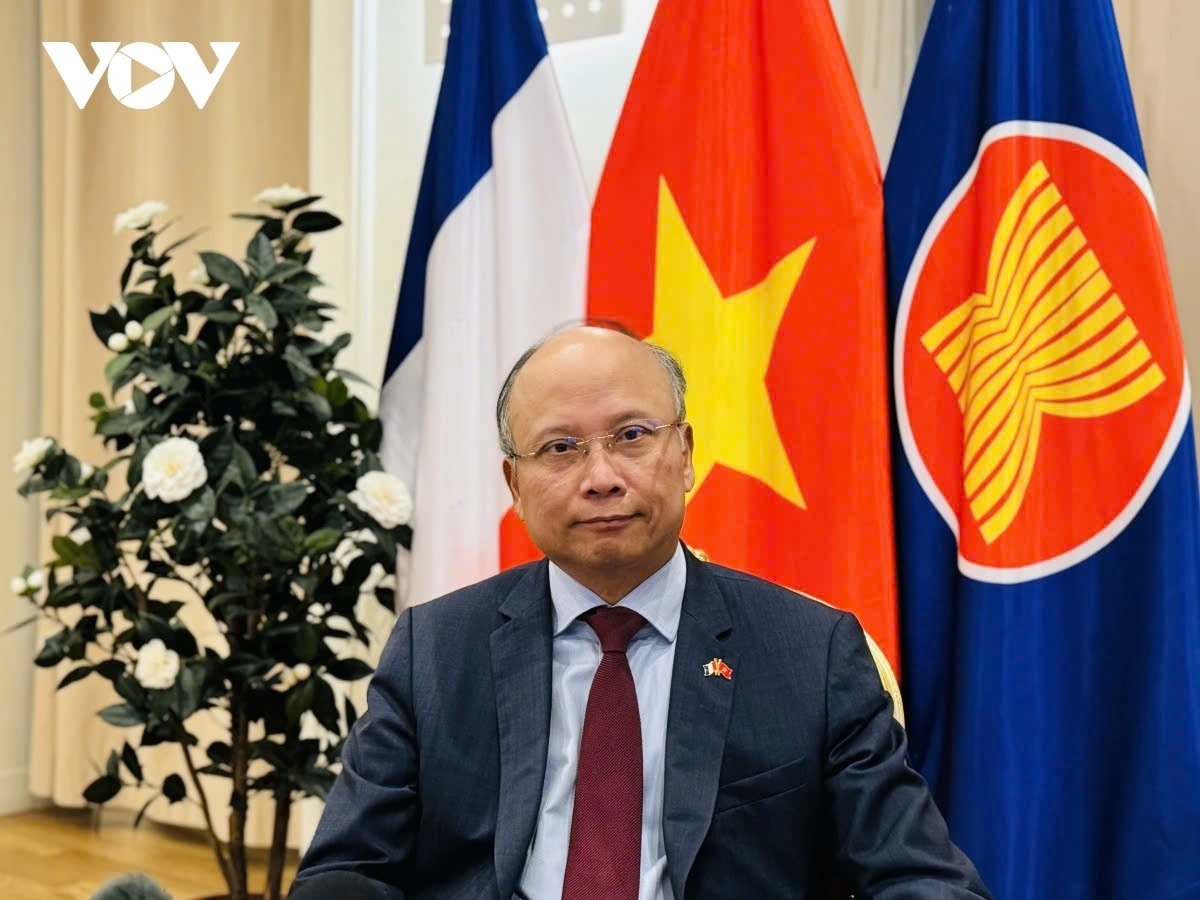
Party General Secretary and President To Lam is making a working visit to France at the invitation of French President Emmanuel Macron from October 3-7. The visit presents an opportunity for both countries to further assert their strong commitment to enhancing the strategic partnership in the new context.
According to Vietnamese Ambassador to France Dinh Toan Thang, Vietnam and France have many favourable conditions to strengthen their relations. France, a developed economy that plays a crucial role in Europe, holds a high political standing and reputation globally. It is a founding and key member of many important regional and international organizations, with significant interests and influence in Asia. Meanwhile, Vietnam is a rapidly developing economy, with dynamism in foreign relations and integration, and an important role in the Association of Southeast Asian Nations (ASEAN).
Both countries value and appreciate each other as partners in the relationship between the two continents, two regions, and between ASEAN and the European Union, sharing common concerns about promoting peace, stability, cooperation, and common values such as multilateralism, respect for international law, and support for the United Nations Charter.
2023 was a significant year in bilateral relations as the two countries celebrated 50 years of their diplomoacy (April 12, 1973 - 2023) and 10 years of their Strategic Partnership (2013-2023). Last year saw more than 50 Vietnamese delegations from various levels pay working trips to France.
The two countries also maintain various mechanisms for regular exchanges on political, economic, and defense affairs at all levels. Among them are the Strategic Defense and Security Dialogue between the Ministries of Foreign Affairs and Defense of Vietnam and France; the annual high-level economic dialogue co-chaired by the Vietnamese Minister of Planning and Investment and the French Minister of Commerce; and the Deputy Minister-level Strategic Defense Dialogue between the two Ministries of Defense.
Economic-trade cooperation – a major pillar
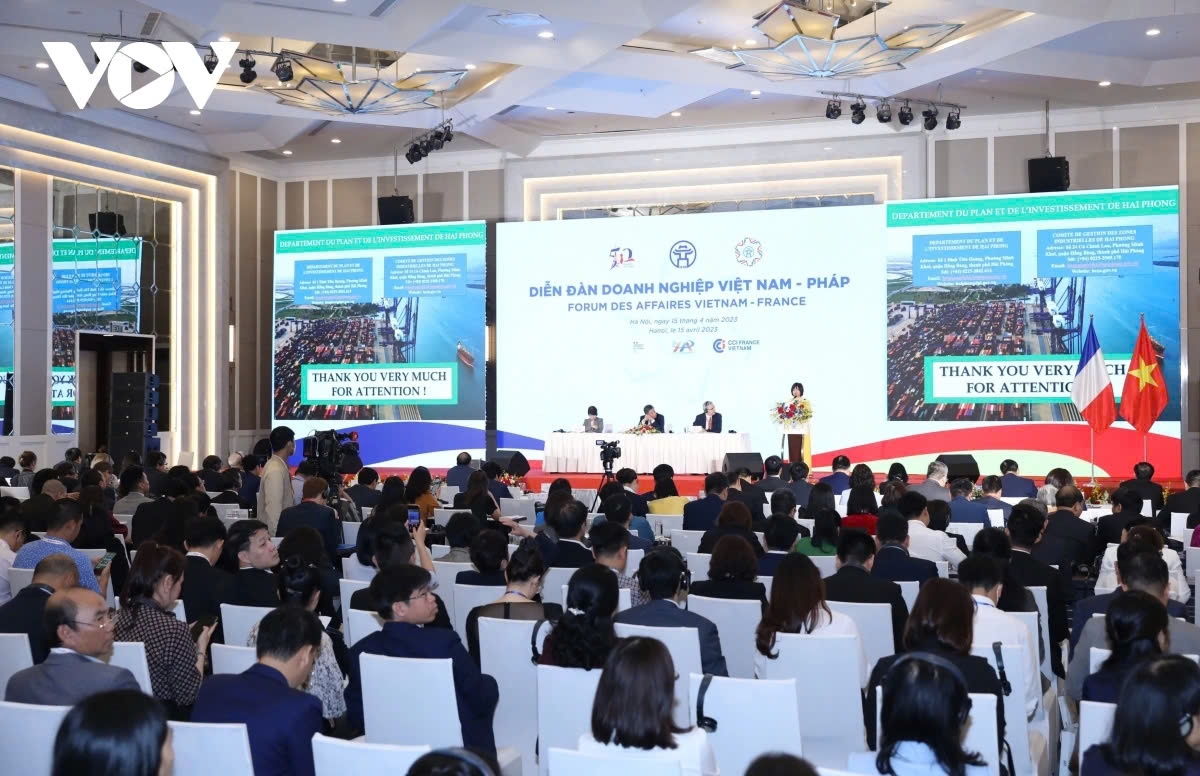
France is currently Vietnam’s fifth largest European trade partner after Germany, the Netherlands, the UK, and Italy, the second largest investor, and the leading provider of ODA for Vietnam within the European Union.
France has over 350 leading enterprises and corporations operating in Vietnam. Its strengths in telecommunications, renewable energy, environmental protection, pharmaceuticals, manufacturing, food processing, infrastructure, logistics services, and high-quality agriculture align well with Vietnam’s development goals and foreign investment attraction efforts. France is also on track to ratify the Vietnam-EU Investment Protection Agreement (EVIPA).
Currently the EU member state has 692 investment projects in Vietnam, with total registered capital of US$3.93 billion, ranking 16th among 149 countries and territories investing in the country. Meanwhile, with support from representatives of the Ministry of Planning and Investment in France, many Vietnamese delegations have been promoting visits to seek cooperation opportunities in France. A notable example of the decentralized cooperation model is between Lao Cai province and the Nouvelle-Aquitaine region, which celebrated 20 years of partnership in June 2024.
Two-way trade turnover between Vietnam and France reached US$4.8 billion last year, and US$2.96 billion in the first seven months this year. France mainly exports to Vietnam aircraft equipment, industrial machinery, pharmaceuticals, agricultural and food products, chemicals, and cosmetics. Conversely, Vietnam is increasingly establishing itself as an important partner for France by exporting a diverse range of products, including footwear, textiles, ceramics, bamboo and rattan products, seafood, machinery, and electronic components.
The Vietnam Trade Office in France has implemented programs to promote Vietnamese culture, cuisine, and goods to a wide range of consumers in France over the past few years. The Vietnamese product weeks held in famous supermarket chains in France, such as Carrefour, Système U, and E. Leclerc, have received enthusiastic responses from French consumers. Through these events, Vietnamese cuisine is becoming increasingly popular among the French public and friends in Europe. Dishes like Bánh Mì (baguette), Phở (noodles) and Bún Bò (noodles with beef) have now become well-received culinary trends in France.
Didier Boulogne, deputy general director in charge of export activities at Business France, affirmed that Vietnam and France have many opportunities for cooperation. According to him, Vietnam is a dynamic country and one of the most open economies in Southeast Asia regarding exports and trade exchanges. With numerous free trade agreements in enforcement, including the EU-Vietnam FTA, Vietnam holds many favourable conditions to spur cooperation.
Fruitful cooperation in science-technology, education, culture
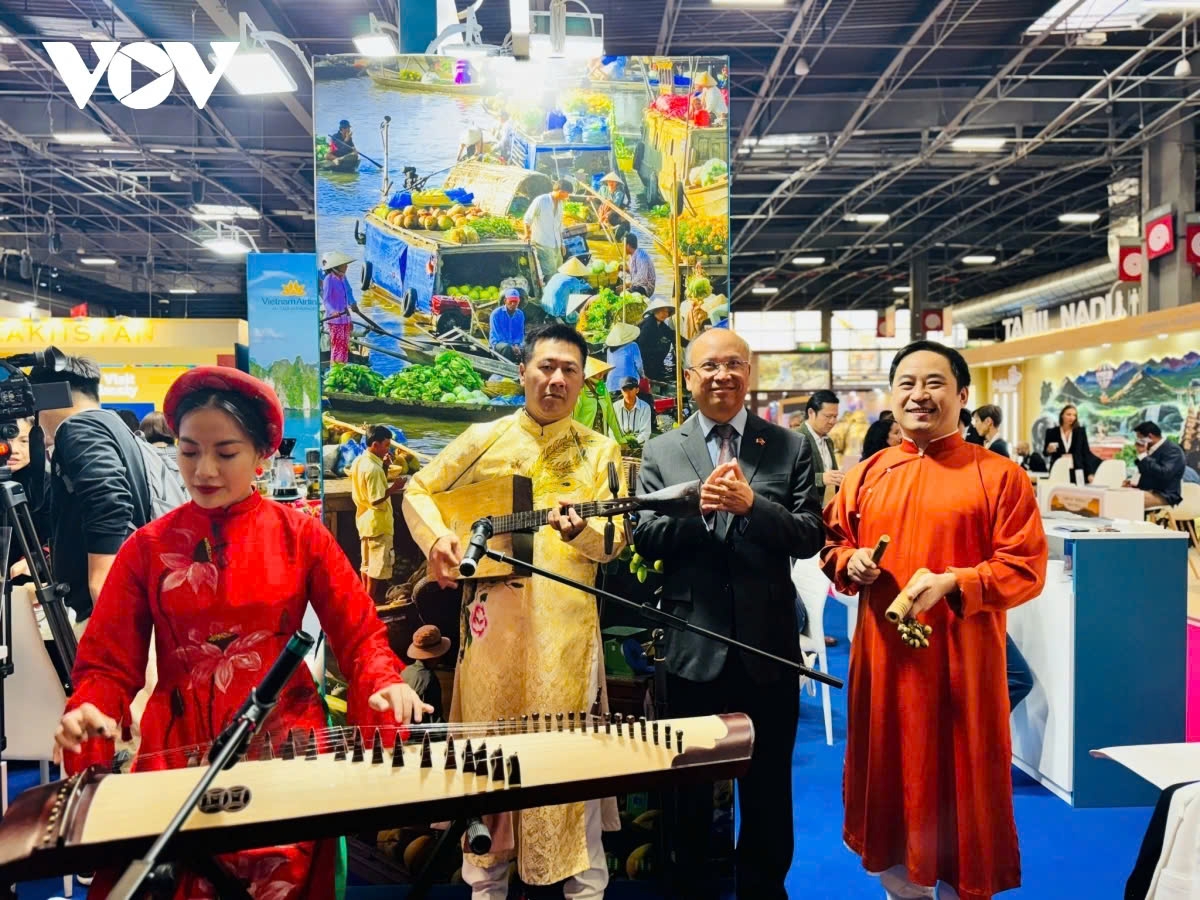
Vietnam and France have begun science-technology cooperation since 1977 through a cultural, scientific, and technical cooperation agreement signed that year. This mechanism allowed both sides to discuss priority activities and joint programs in the fields of culture, science, and technology.
Decades later, a scientific and technological cooperation agreement between the two governments was signed in 2007 to ensure the importance and mutual benefits of cooperation activities and projects in research, technology transfer, and training across various fields. The agreement aims to create a favourable environment for experts, agencies, and organizations in both countries to further strengthen their cooperation in exchanging information and developing and implementing programs and projects of mutual interest.
To implement this agreement, the Ministry of Science and Technology of Vietnam and the Ministry for Europe and Foreign Affairs of France signed a memorandum of understanding for the Hoa Sen scientific exchange support program, aimed at developing excellent scientific and technological cooperation activities between the research organizations of both countries and encouraging young researchers to engage in the program. The program spans main areas of cooperation, including biotechnology, health care, new materials, information and communication technology, mathematics, applied physics and chemistry, nanotechnology, natural compounds, environment, and agriculture.
After 17 years of deploying the program, both sides have engaged in scientific exchanges in health care, agriculture, biotechnology, and new materials, among others. Vietnam has trained many officials through short-term, and bachelor's, master's, and doctoral degree courses, with many of their research projects published in many local and international journals. Vietnamese scientists have been given opportunities to work in modern environments, use advanced research equipment, and access new research results. Additionally, cooperation between Vietnam and France in other areas has been actively promoted, such as the peaceful use of nuclear energy, intellectual property, and space technology.
In terms of education and training, with a long history of cooperation, France has always prioritized teaching and developing the French language in Vietnam. Since the Francophonie Summit held in Hanoi in 1997, France has supported Vietnam in opening many bilingual French-Vietnamese classes, assisted Vietnamese officials and teachers in training in France, and strengthened cooperation with educational institutions in Vietnam, such as universities, to encourage human resource training at undergraduate and postgraduate levels in various fields like economic management, banking, finance, law, and new technologies.
Both sides have implemented several key projects in education, such as a high-quality engineering training program in Vietnam and the establishment of two PUF Training Centres at Vietnam National University (VNU) in Hanoi and VNU in Ho Chi Minh City, as well as the International Francophone Institute (IFI).
Regarding cultural cooperation and people-to-people exchanges, both Vietnam and France prioritize organizing bilateral promotion activities, viewing this as a highlight of their relationship. The Vietnamese Embassy in France, along with the permanent Vietnamese delegation to UNESCO and the Vietnamese Cultural Center in France, continuously engage in activities to promote Vietnamese folk songs such as Quan họ (love duet singing) and Chầu văn (ceremonial singing), as well as famous traditional art forms like Đông Hồ folk paintings and lacquer art.
France is also actively introducing various forms of its famous culture to the Vietnamese people. Through the activities of the French Embassy in Vietnam, along with the collaboration of Business France and the French Institute in Vietnam, many French film weeks have been launched, and numerous French culinary festivals have become popular rendezvous places for the Vietnamese community.
A new partnership framework on the horizon
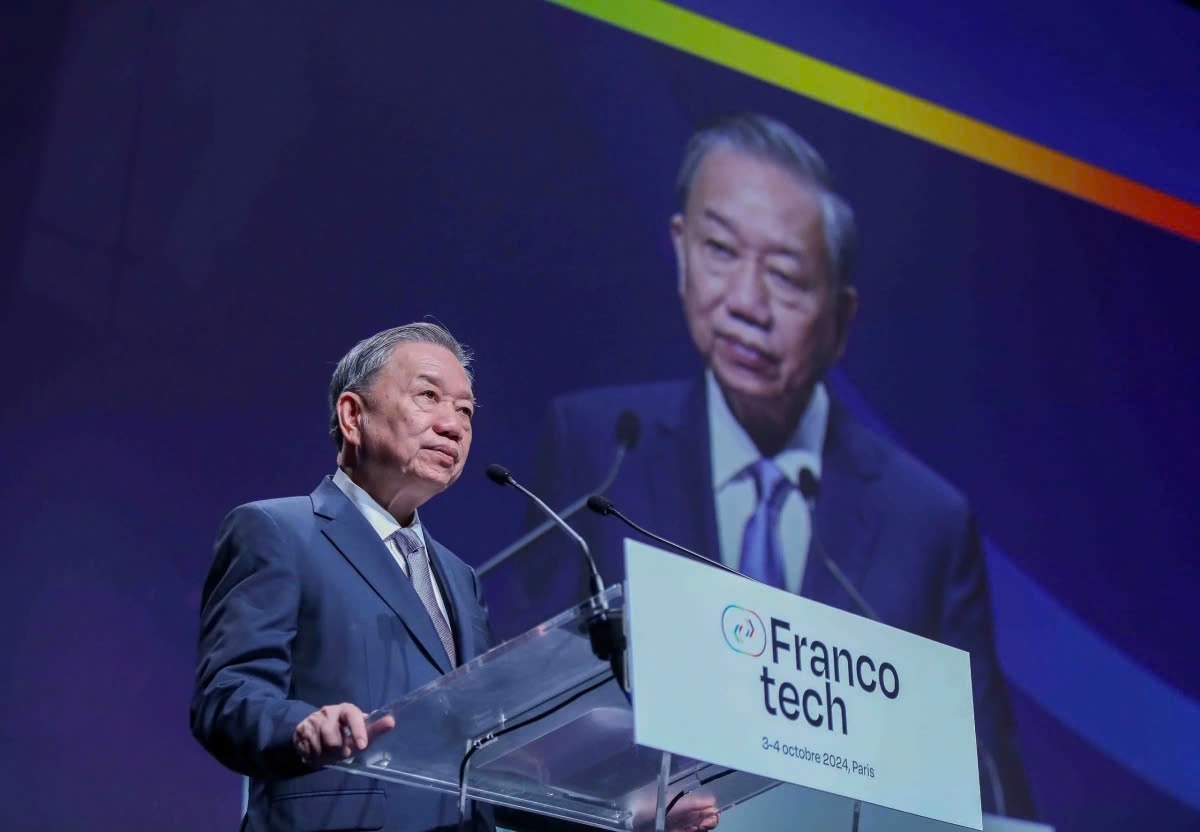
Vietnam and France are presented with numerous opportunities to elevate their cooperation in both quantity and quality, especially as both countries confront significant demands for national development and contribute to the global community’s efforts for peace and cooperation.
The political will of the two countries’ leaders, the support of their citizens, and the proactive engagement of partners in various fields will create a fresh impetus to enhance the cooperative relationship between the two sides. This relationship will help both countries continue to build their strength and position in a rapidly changing world that requires reinforced cooperation to address common challenges related to development, security, and stability.
During the official visit to France from October 3-7 by General Secretary and President To Lam, both countries will outline major directions, establish frameworks, and open a new chapter in Vietnam-France relations, with a primary focus on improving the effectiveness of and upgrading bilateral cooperation mechanisms, and deepening cooperation in politics, defense, security, economy, trade, and investment. Special emphasis will be placed on science and technology, innovation, and high-tech cooperation and technology transfer. Cooperation in sectors where France has strengths and Vietnam has needs - such as aerospace, energy transition, climate change adaptation, green economic development, ecological agriculture, circular agriculture, green hydrogen production technology, green tourism, maritime economy, and sustainable fisheries - will be strongly promoted in the near future.
This is the first time To Lam has visited France in his new capacity as France as Party General Secretary and President of Vietnam. It is also the first state visit by a head of state of Vietnam to France in 22 years. The visit aims to deepen the Vietnam-France Strategic Partnership and work towards upgrading bilateral relations in the future.


